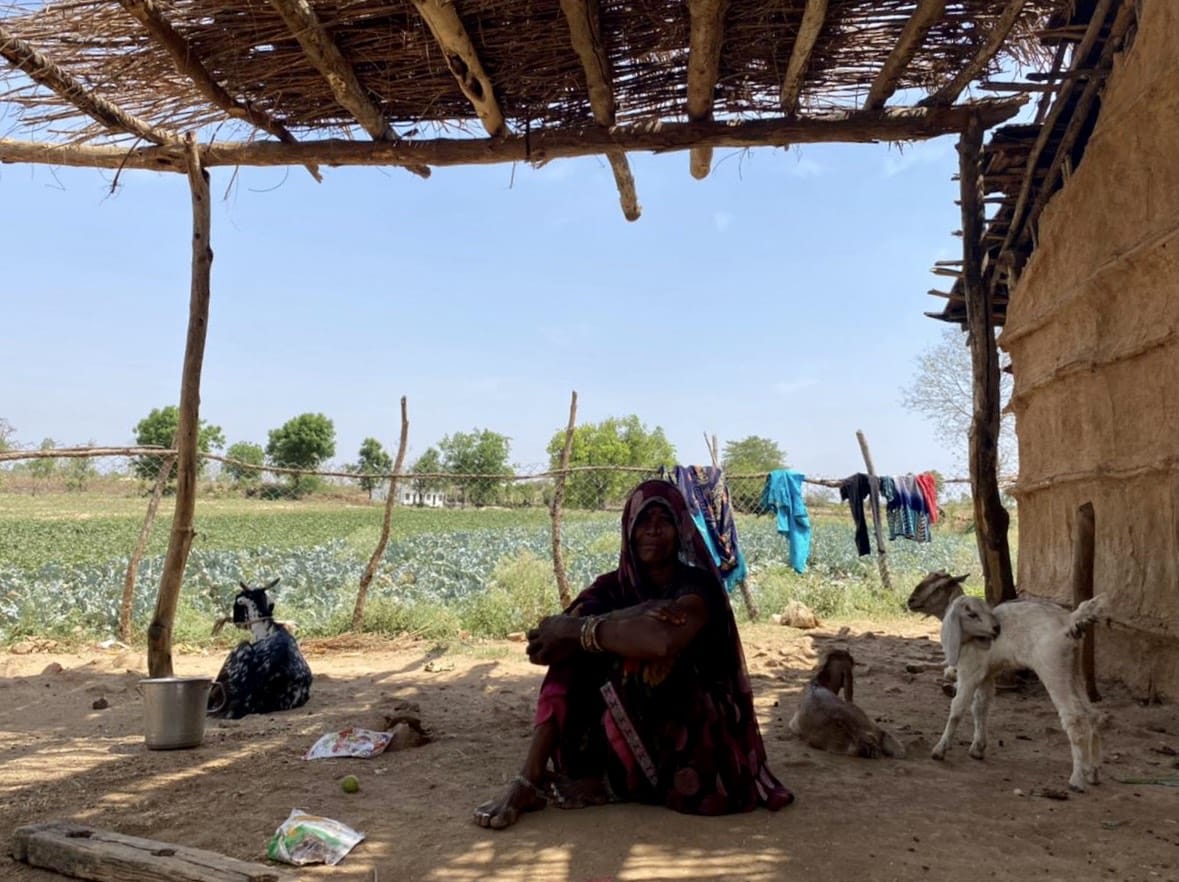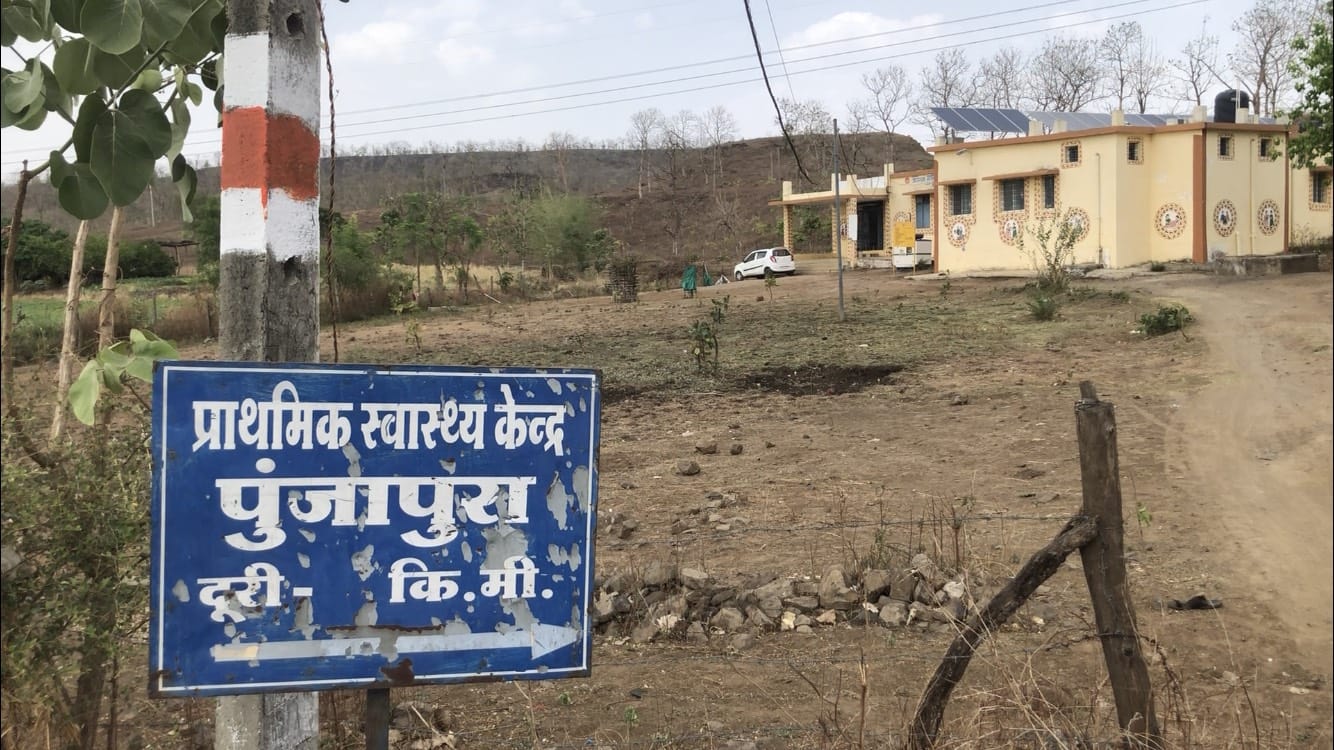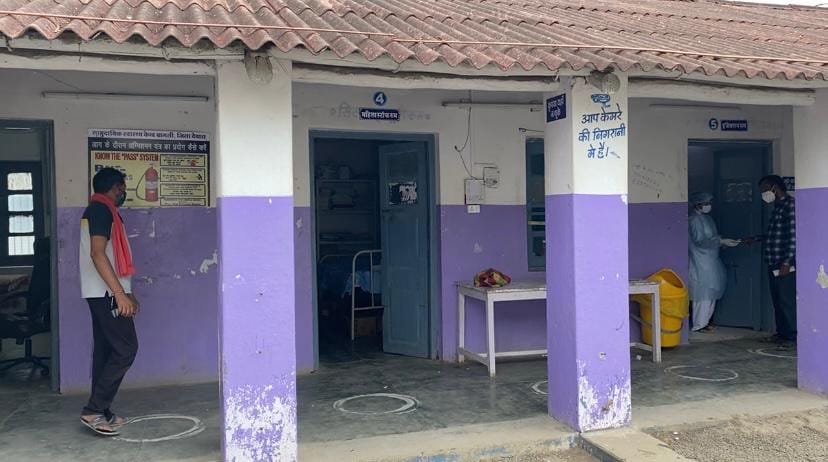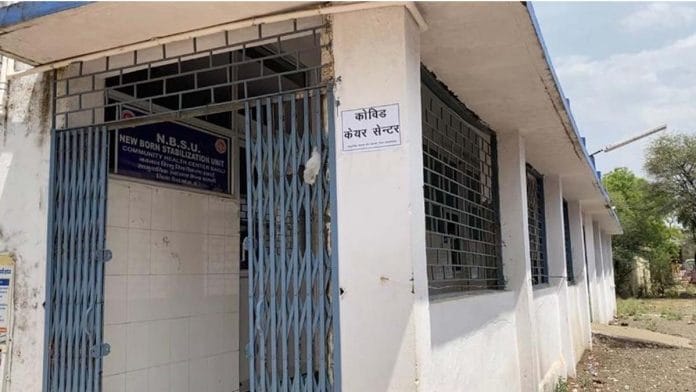Bagli: Imam Mujalde, a 29-year-old ASHA worker, sets out at 9 am every morning to convince villagers in the Bagli tehsil to get vaccinated against Covid-19. However, she faces a formidable challenge in the tribal belt, situated in Madhya Pradesh’s Dewas district, day in and out — vaccine hesitancy.
“Convincing the Adivasi population to get their vaccine is a huge challenge. They keep saying they will get a fever and die if they get the vaccine. Sometimes they start shouting at me or shut the door on my face. Still, I try to calmly explain to them why it will help them but they just don’t listen,” said Mujalde, who has been an ASHA worker in the Punjapura village in Bagli since 2013.
Twenty-five kilometres away in Udainagar, another village in Bagli, ASHA worker Nuriya has the same complaint. And the fear against the vaccines is palpable in the village.
In a house with a barely thatched roof, 55-year-old Jhumka Bai sat on the floor with three goats for company and a firm resolve to not get vaccinated.
“I am very scared. I will not get the vaccine. I have heard many people have got fever after getting the shot,” she told ThePrint.
Temperatures soar to 45 degrees Celsius in this part of Madhya Pradesh even in April and this has also contributed to the hesitancy with inoculations.
Jhumka Bai’s brother-in-law, 35-year-old Gulab Bharose said: “It is very hot here. And we’ve heard that once you get the vaccine your body heats up. We are scared of heart failure. That’s why no one from the family will get the shot even if we are allowed to.”
But this uncertainty regarding vaccines can prove to be fatal for these tribal villages in Bagli. As Covid cases overwhelm hospitals in the cities of MP, the second wave has also made inroads into the tribal population.
According to a local healthcare department official, who wished to remain unnamed, there are currently 365 active cases in Bagli, which has a population of 10,310, according to the 2011 census.
The Dewas district, meanwhile, reported 4,811 total cases and 40 deaths till Saturday, as noted by the state’s health bulletin.

Also read: No Covid tests for Kumbh returnees, no beds or data — how 2nd wave has hit Indore, Bhopal
Testing fine, but ‘won’t get vaccinated’
Agriculture is a major source of income in this tribal belt and even with the sun beating down, farmers and labourers can be seen hard at work, harvesting crops. But none of them was found wearing masks.
In one such field in Udainagar, which is lined with sacks of harvested onions, Seema Morya, a 23-year-old farm labourer, joined harvest efforts after a month without work.
“I know about the mahamari (pandemic). But we are not taking any medicine or anything. We are not scared of getting infected,” Morya told ThePrint, as her three young children ran around the field, also without masks.
Just like Morya, villagers in this belt are aware of the virus but this has only managed to convince them to get tested. Local health authorities have made little headway with vaccinations.
“People are more afraid this time. Last year, the virus had not reached us. Now, we hear of people in neighbouring villages getting infected. Two people died in our village today, another four people died in a nearby village,” said Dharmendra Kumar, a fruit vendor in Punjapura.
This has increased fear and suspicion among villagers. According to Sunil Jathab, an operator of the vaccination drive in the village’s primary healthcare centre, only 16 people had come for vaccinations Saturday.
“The villagers are worried about the fever you get after getting the vaccine. We give them paracetamol, but they are still afraid. They think they will fall sick. The locals treat our ASHA workers very badly. They abuse them and are willing to give up their pension and ration but are not willing to get vaccinated,” he told ThePrint.
With an aim to vaccinate 100 people a day, Punjapura’s performance remains very poor. They last managed such figures in March but now, hardly 15 people visit the centre. The village has a population of 4,875, which makes up 47 per cent of the entire tehsil.
In Udainagar — which constitutes 30 per cent of the tehsil’s population — just 14 people showed up to get vaccinated Saturday.
However, Dr Amit Nagar, from the village’s primary healthcare centre, maintained that around 50-60 per cent of the eligible population had been inoculated.

Also read: The curious case of MP health minister who went missing for a month amid Covid spike
Some villages lack proper health facilities
Aside from vaccine hesitancy, Punjapura also does not have adequate health facilities to treat Covid-19.
While a lockdown was imposed in the village, cases continue to rise in the region. And the villagers have no facility to get tested. If they develop symptoms they have to travel to a government hospital in Bagli, which is 15 km away.
“People are afraid of the virus. But for how long will we be afraid? We need to face it. Our primary healthcare centre does not have the facility to treat us or even test us”, Kumar said.
Punjapura does have a fever clinic and a quarantine centre but both of them have been shut for more than a month and a half. The two facilities were closed after cases dipped in the region, but were never reopened after the surge.
Not all villages suffer such a state, however. Udainagar’s fever clinic reopened over a week back after cases began to rise in the village.
“On an average, 50 samples are tested in Udainagar, of which between 2-10 are positive on a daily basis. Results are taking three-four days to come,” Dr Jaswant Panwar, the Ayush Medical Officer who handles the Covid-19 ward in Udainagar, told ThePrint.
Panwar said awareness about the virus made people more amenable to getting tested.
“All 38 of our patients right now are in home quarantine, the medical kit provided by the government is sufficient to treat them,” he added.
Also read: Not vaccine hesitancy, here’s what is keeping MP residents away from vaccination centres
No oxygen, beds in Bagli’s govt hospital
The patients that contract severe Covid-19 in Punjapura and Udainagar are shifted to the Bagli Government Hospital, which is the region’s only Covid-dedicated hospital.
But just like any other city in the country at the moment, the hospital is also facing an acute shortage of oxygen and medicines. Five of its eight available beds are currently occupied since a majority of the patients remain in home isolation.
In the hospital, however, no strict protocols are being followed. Shailendra Yadav, 26, casually entered the Covid care unit of the hospital where his 45-year-old mother is on 60 per cent oxygen support. Nobody stopped him on entering or questioned him when he left.
“We are trying to tell home isolated patients to maintain their oxygen levels through natural means — for example by taking long, deep breaths. We don’t have enough oxygen which is why we are suggesting these means to our home isolated patients. Those who come to us are in a desperate need of oxygen but we don’t have it,” Dr Vishnulata V.K., Block Medical Officer at Bagli, told ThePrint.
As of now, the hospital is surviving on four oxygen concentrators — a medical device that concentrates oxygen from ambient air. They have asked the government for 60 jumbo cylinders — where one can support a patient for up to 12 hours — but are yet to receive a response.

Not only are patients physically unwell, doctors also have to treat several episodes of depression among those isolated at home.
“Due to isolation, patients are going into depression and that is hampering our process of treating them. To tackle this, our rapid response team counsels home isolated patients via video calls. Patients are also very afraid that they won’t recover,” Dr Vishnulata said.
Till January, Joseph Hospital, a private hospital in Bagli, was also treating Covid patients but as the demand for oxygen and medicines like remdesivir skyrocketed, they had to stop.
“Till June-July, we had no case here in Bagli. Containment and lockdown was strictly implemented and followed. The local administration did an admirable job. Once the lockdown was lifted, people started bringing in infection from Dewas and Indore,” Dr John Joseph, who works in the hospital, told ThePrint.
The second wave of the pandemic has proven to be deadlier than the first in Bagli with 2 to 30 people succumbing to the virus. But even then, many continue to go without masks in the region or wear them improperly.
(Edited by Rachel John)
Also read: Raw material shortage hits blood tests that dictate course of Covid treatment






